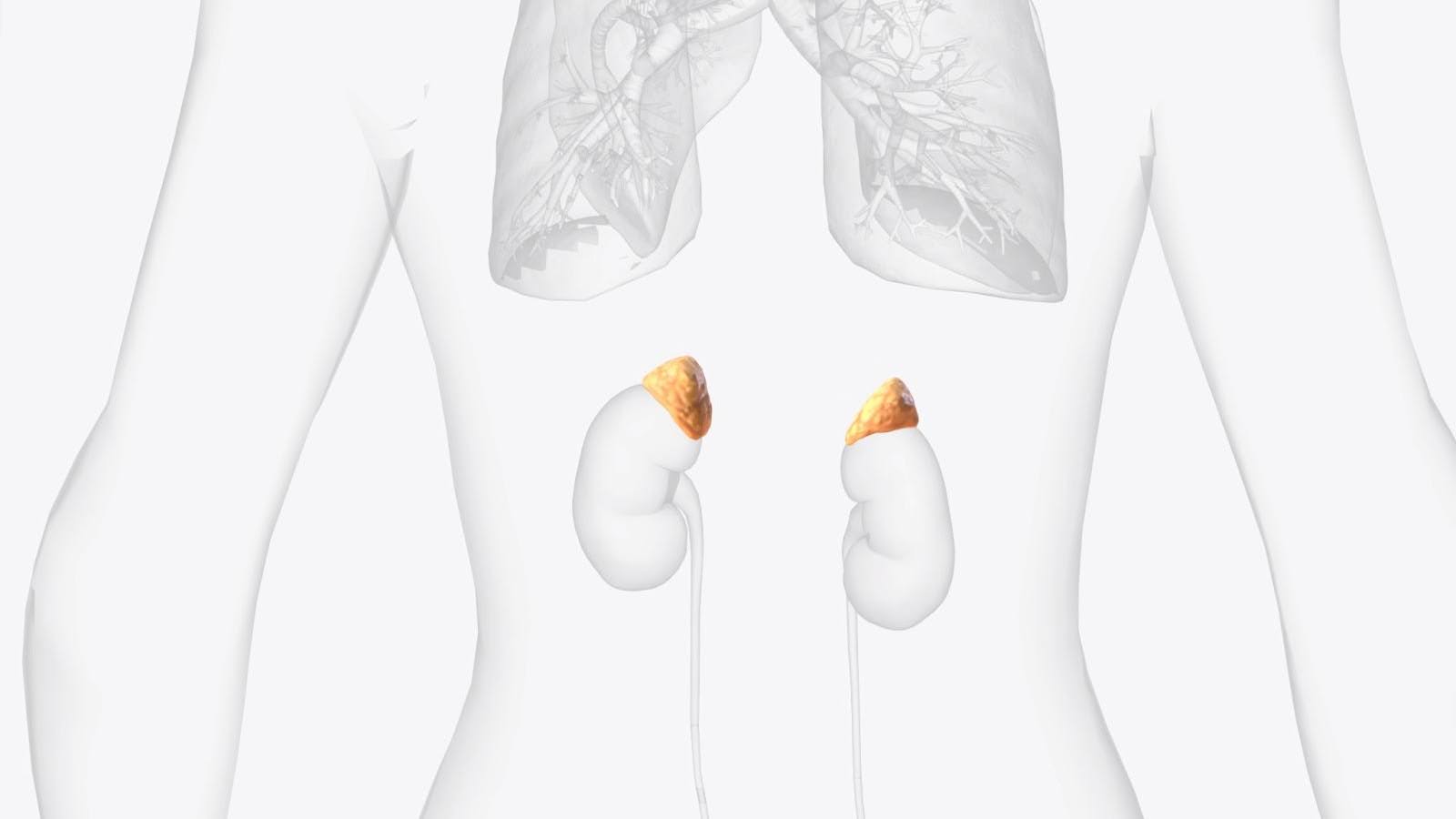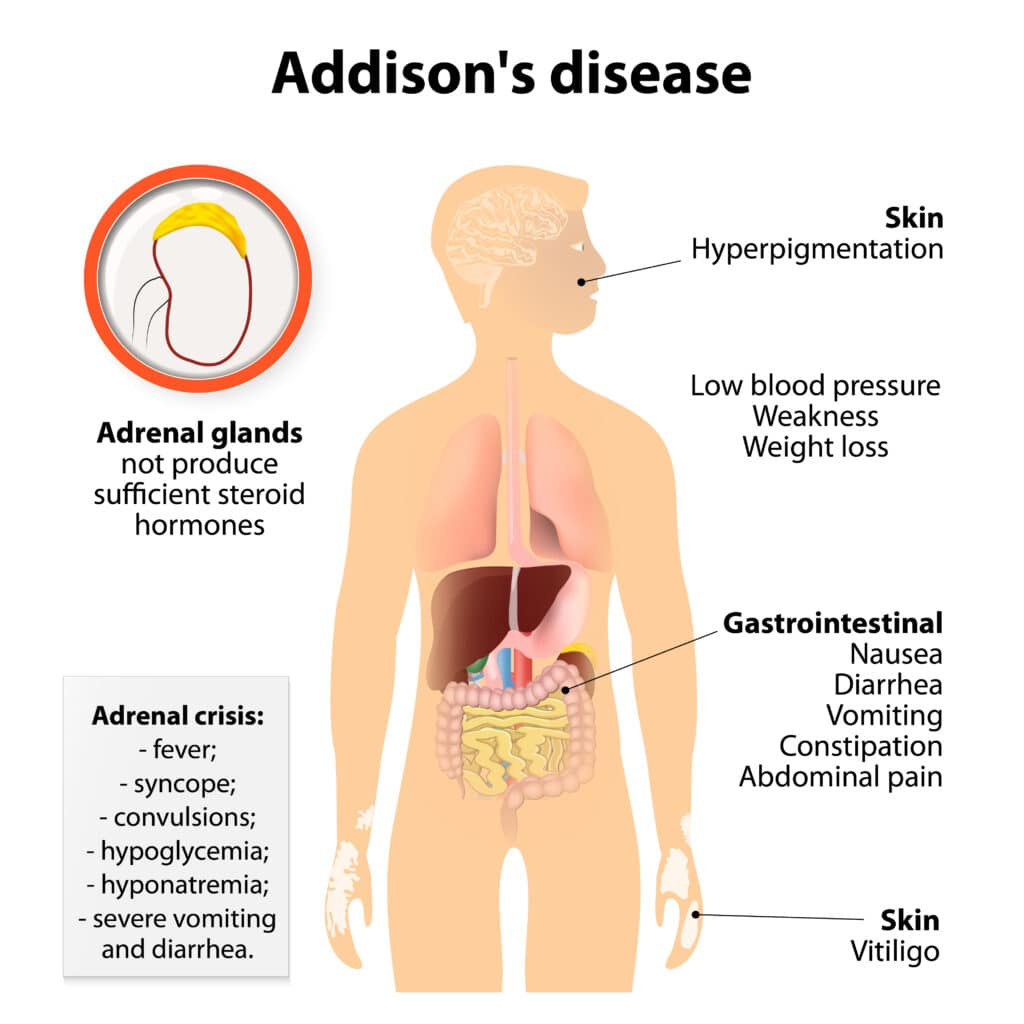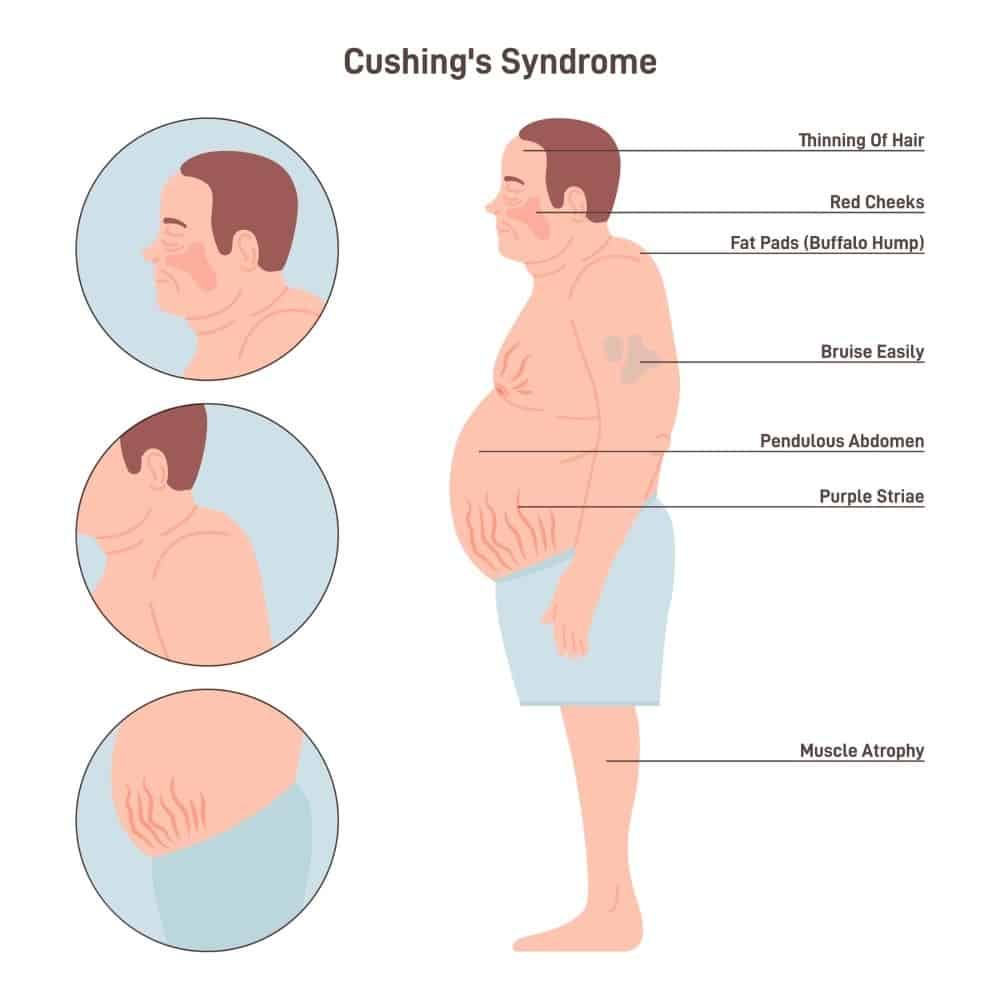You may have come across the term “adrenal fatigue”—a phrase often used to describe a persistent state of exhaustion, muscle weakness, body aches, and difficulty falling or staying asleep. While some may choose to use this term to label a group of symptoms present in an individual, the patient tends to show no signs of abnormalities during testing. Hence, no apparent diagnosis is made, but the patient may be labelled with having ‘adrenal fatigue’. However, is it a legitimate medical condition?
In this article, we take a deeper look at adrenal fatigue and examine what might really be causing these signs, whether they stem from actual adrenal gland dysfunction or another underlying issue. Understanding the science behind your symptoms is the first step toward getting the right care and reclaiming your well-being.
What Is Adrenal Fatigue?

Just above the kidneys lie two adrenal glands. These small triangle-shaped glands produce hormones that help regulate the body’s response to excitement, stress, or danger. When triggered by the brain, the adrenal glands release hormones such as cortisol to help the body cope with the situation. Once the trigger subsides, hormone production typically returns to normal.
Adrenal fatigue is a term used to describe the idea that prolonged exposure to stress causes the adrenal glands to become ‘burnt out’, leading to symptoms such as persistent fatigue, body aches, sleep problems, and low mood.
However, it is important to note that adrenal fatigue is not a medically recognised condition.
While the symptoms commonly linked to adrenal fatigue are very real, grouping them under a single label can be misleading. This is because the different symptoms present may stem from various underlying conditions, which require separate diagnosis and treatment respectively. As such, a more recommended approach in the medical field is to conduct an evaluation to determine whether an actual adrenal disorder is contributing to the symptoms.
Common Symptoms of Adrenal Dysfunction
Adrenal dysfunction, medically known as adrenal gland disorders, occurs when the adrenal glands produce either too much or too little hormone. Symptoms due to these conditions may widely vary, but often include the following:
Persistent Fatigue
Patients who suffer from persistent fatigue due to an adrenal disorder often experience an overwhelming sense of tiredness that does not improve with sufficient sleep. This frequently occurs as a result of low cortisol production, which is an essential hormone to maintain energy levels in individuals.
Unusual Food Cravings

Surprisingly, cravings for certain foods can indicate an underlying deficiency in the body. In the case of salt cravings, one of the possible reasons could be due to sodium loss that occurs from a hormonal imbalance. When the body does not produce enough aldosterone (a hormone that helps to keep salt in the body), the kidneys may start to secrete excess sodium. In turn, the body will send a salt craving as a signal of the deficiency in the body.
Sleep Challenges
The human sleep cycle follows a pattern known as the circadian rhythm. This 24-hour cycle regulates periods of wakefulness and sleep, closely aligned with natural daylight and darkness. Similarly, the hormone cortisol is produced in a daily rhythm. During the night—particularly around midnight, when most people are asleep—cortisol levels (often referred to as “stress hormones”) are at their lowest. However, disruptions in the body’s cortisol production cycle can lead to sleep issues, such as restless sleep or insomnia.
General Pain and Discomfort
An imbalance of certain hormones in the body can lead to muscle and bone weakness, resulting in general pain and discomfort that may persist without proper treatment.
In patients with prolonged high levels of cortisol, muscle and bone deterioration can occur over time. Conversely, those with persistently low levels of cortisol and aldosterone may also experience muscle weakness, although the mechanism differs.
Feeling Dizzy or Lightheaded
When it comes to dizziness or light-headedness, they can be symptoms of an underlying adrenal gland disorder. When cortisol or aldosterone levels drop, blood pressure may also decrease, leading to symptoms such as dizziness or fainting.
Changes in Body Hair

Certain hormones, such as androgen (a sex hormone), play a role in regulating hair growth. When there is an excess or deficiency of these hormones, it may lead to excessive hair growth in unusual areas such as the face, chest or back for women. In contrast, when there is a lack of this hormone, individuals may experience hair loss.
Recognised Adrenal Disorder
It’s understandable that the symptoms above may seem general and could be linked to a variety of underlying conditions. That’s why consulting a healthcare professional for an accurate diagnosis and appropriate treatment is an optimal choice for most patients.
That said, being able to first identify the above symptoms as possible signs of an adrenal disorder will be greatly beneficial to guide patients to the right specialist. In Singapore, adrenal disorders are diagnosed and managed by an endocrinologist. Some of the commonly recognised adrenal disorders include:
Adrenal insufficiency
Adrenal insufficiency is a rare yet serious condition in which the adrenal glands fail to produce adequate amounts of hormones. It is generally classified into two main types: primary (also known as Addison’s disease) and secondary adrenal insufficiency.
Addison’s disease

Primary adrenal insufficiency, also known as Addison’s disease, occurs when the adrenal glands are directly damaged, resulting in insufficient production of the hormones cortisol and aldosterone (also known as corticosteroids). The most common cause of this damage is an autoimmune condition in which the body’s immune system mistakenly attacks the adrenal cortex.
Secondary adrenal insufficiency, on the other hand, arises from a deficiency of ACTH (adrenocorticotropic hormone), which is produced by the pituitary gland. ACTH normally stimulates the adrenal glands to produce cortisol. Therefore, a lack of it leads to reduced cortisol levels. In this case, adrenal insufficiency is typically caused by:
- Presence of pituitary tumours,
- Long-term use of steroids, which can suppress ACTH production
- Damage to the pituitary gland from surgery or injury.
Although the underlying causes differ, both types of adrenal insufficiency can result in similar symptoms, including:
- Fatigue
- Muscle weakness
- Weight loss
- Low blood pressure
- Salt craving
Cushing’s syndrome

Cushing’s syndrome occurs when the adrenal glands secrete excessive amounts of cortisol, commonly referred to as the stress hormone. This overproduction is often triggered by tumours within the endocrine system (a network of glands and organs responsible for producing and releasing hormones that regulate various bodily functions).
In some cases, long-term use of corticosteroid medications to treat other medical conditions can also lead to Cushing’s syndrome. This is because corticosteroids mimic cortisol, and prolonged exposure to high doses can result in similar effects as naturally elevated cortisol levels.
When to Consult an Endocrinologist

Adrenal disorders often begin with mild, non-specific symptoms that can be easy to brush off. However, if you notice that these symptoms continue to persist despite attempts at self-remedy, your condition could be due to a more serious underlying cause. When in doubt, you are advised to seek professional help, such as from an endocrinologist for adrenal dysfunction, to prevent unwanted long-term health complications. As with most conditions, early detection and timely treatment are key to ensure you can manage your condition while maintaining a good quality of life.
In Singapore, diagnosing hormonal disorders typically involves blood tests, followed by imaging studies to confirm the diagnosis. Treatment may then be tailored to either increase or decrease hormone levels, depending on the condition, and may involve medication, surgery, or radiation therapy.
For generally healthy individuals, undergoing a health screening package can be a proactive way to detect hormonal imbalances or other concerns early, before symptoms even arise.
Speak to an Endocrinologist in Singapore
If you have been struggling with the above symptoms for some time without clear answers, consider scheduling an appointment with Dr Vikram Sonawane, Medical Director of Harmony Thyroid, Endocrinology and Diabetes Centre, and an experienced endocrinologist in Singapore.
At Harmony Thyroid, Endocrinology and Diabetes Centre, the team is well-equipped to help you arrive at a prompt and accurate diagnosis. This paves the way for tailored care designed specifically around your individual needs. With years of experience, Dr Vikram not only manages complex hormonal disorders but is also dedicated to providing holistic, patient-centred care.
References
- Cleveland Clinic. The Truth About Adrenal Fatigue. Cleveland Clinic. https://health.clevelandclinic.org/the-truth-about-adrenal-fatigue. Published June 5, 2020. Accessed August 1, 2025.
- Mayo Clinic. Adrenal fatigue: Is it real? Mayo Clinic. https://www.mayoclinic.org/diseases-conditions/addisons-disease/expert-answers/adrenal-fatigue/faq-20057906. Accessed August 1, 2025.
- Cleveland Clinic. Adrenal Disorders. Cleveland Clinic. https://my.clevelandclinic.org/health/diseases/16717-adrenal-disorders. Accessed August 2, 2025.
- Cherney K. Cortisol and Sleep: How Cortisol Affects Sleep. Healthline. https://www.healthline.com/health/cortisol-and-sleep#how-it-affects-sleep. Published May 20, 2021. Accessed August 2, 2025.
- Healthgrades Editorial Staff. What Your Salt Craving Is Trying to Tell You. Healthgrades. https://resources.healthgrades.com/right-care/symptoms-and-conditions/craving-salt#:~:text=Addison’s%20disease%20or%20primary%20adrenal,salt%20intake%20in%20the%20diet. Accessed August 2, 2025.
